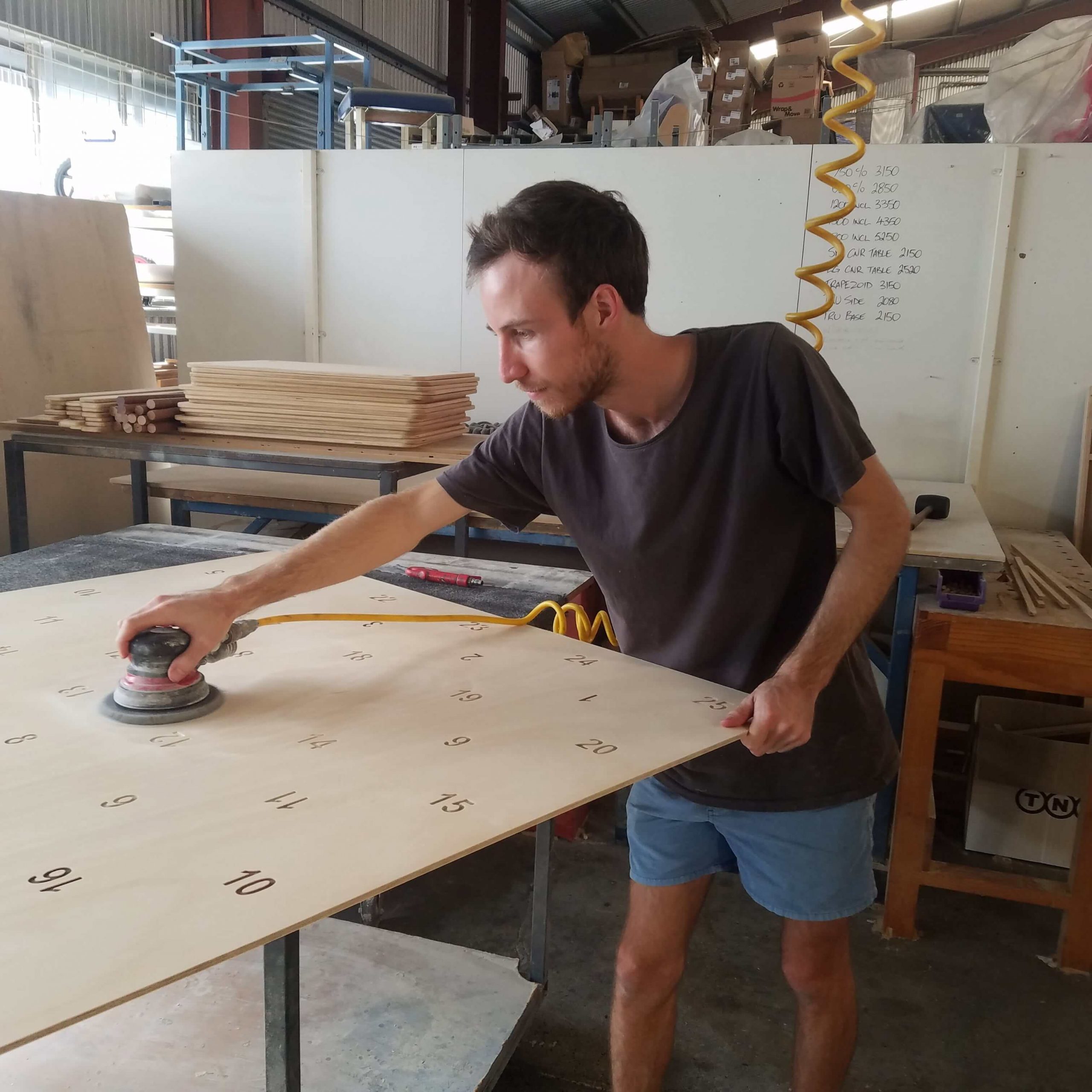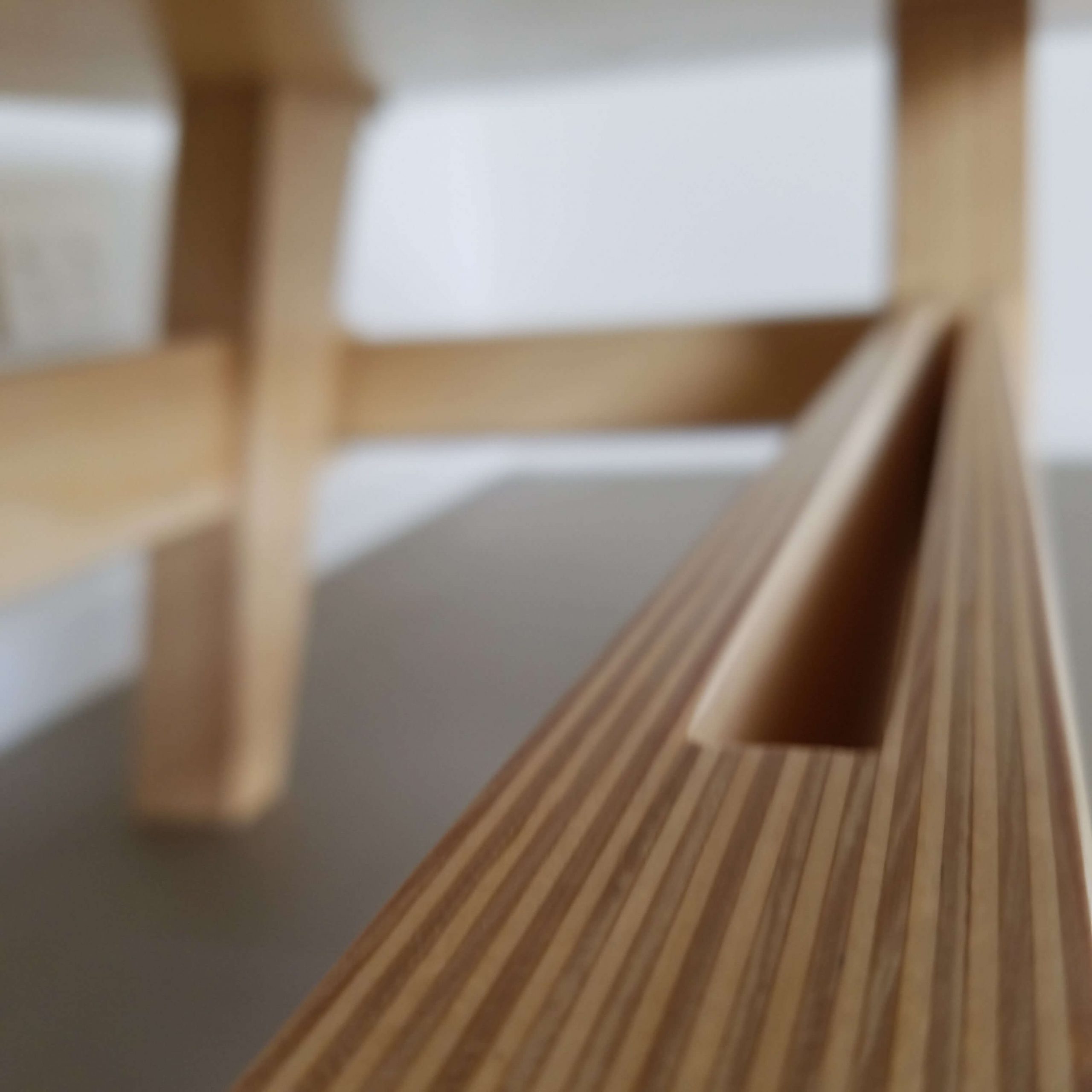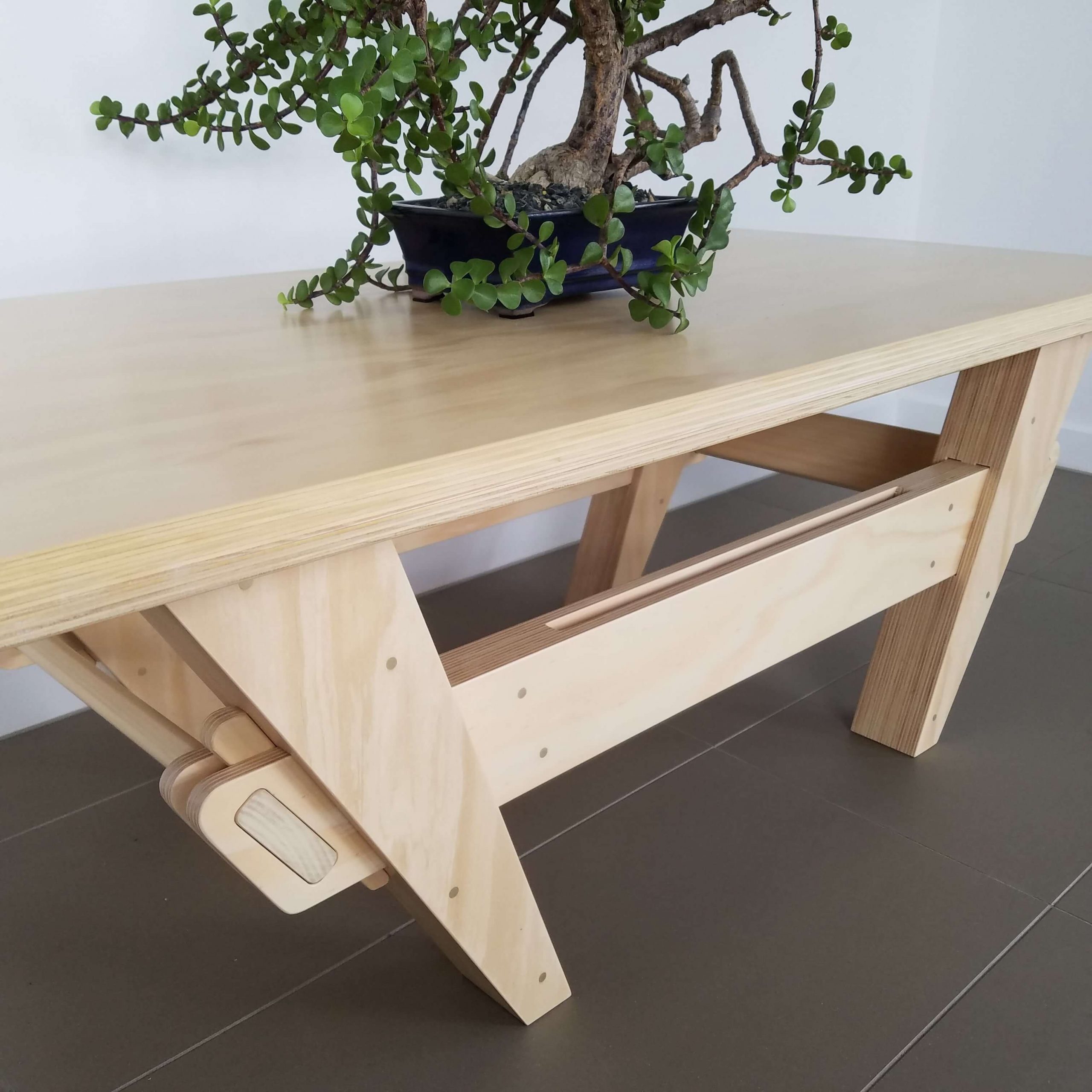In the Brisbane suburb of Yeerongpilly flat-pack furniture is being re-imagined. Here, joiner Ben McGreevy recently launched furniture company Oak and Hide, using Australian Hoop Pine to craft furniture that will be ingeniously flat-packed for delivery but guaranteed to out-live its cheaper flat-packed rivals by decades. McGreevy has abolished the need for allan keys, dowels, fasteners and bolts (which are often discarded anyway). A desktop Computer Numerical Control (CNC) machine has allowed McGreevy to design and create timber joinery with pinpoint accuracy including many complicated joints that are not possible to achieve by hand.

Ben McGreevy – Committed to the craft
The Oak and Hide coffee table is his flagship product, borne out of his frustration with flat-packed furniture – it features a clean, simple design, with strong joints, that doesn’t require any tools to assemble. “Even though I have probably assembled and disassembled this piece more than 50 times, I still enjoy slotting the pieces together.” McGreevy explains.
Despite studying mechanical engineering, McGreevy was drawn to wood work, saying “It’s fair to say I caught the woodworking bug. There’s something special about making products from timber with every piece having a unique grain, different textures, smells and behaviours. It’s just a great feeling when you make something that looks great and also has a purpose.”
McGreevy also sets his work apart from competitors by remaining staunchly committed to using sustainable timber. For his coffee table, he chose Australian Hoop Pine after initial trials with Australian hardwoods such as Blackbutt proved to be too heavy to meet his flat-packed delivery requirements.
“For me, it’s an ethical choice but other people take an interest in the fact that I only use sustainable timber and fully support its use.” Says McGreevy. He adds, “The Austral Plywoods Hoop Pine plywood was manufactured locally and sourced from plantations here in Queensland, making it ideal for my products.”

Pine is sourced from Responsible Wood certified HQPlantations
Oak and Hide can be also be assured of the sustainability credentials of the Hoop Pine it has selected because it was sourced from both a forest and processor with Responsible Wood certification.
The Hoop Pine Ben selected for this table began its life in the shady corner of one of HQ Plantations’ Queensland forests. Responsible Wood certifies HQ Plantations according to the Australian Standard for sustainable forest management (AS 4708) an independent and rigorous assessment process, ensuring they employ best practice in sustainable forest management.

Pine is processed from Responsible Wood certified Austral Plywoods
HQ Plantations states these internationally recognised certification standards provide their “customers, stakeholders, neighbours and other forest visitors with the assurance that our forest assets are managed sustainably with regard to economic, environmental, social and cultural requirements.”
Once harvested, the Hoop Pine was transported to Austral Plywoods for processing. Austral Plywoods also prides itself on its Responsible Wood accreditation (to AS 4707, relating to chain of custody) and recognises the advantage this certification provides them over competitors.
Chain of Custody refers to an environmental certification system where an unbroken chain from a certified, sustainable forest (in this case HQ Plantations) right through to the end user can be demonstrated against the AS 4707 criteria.
The advantages for companies like Oak and Hide trying to make informed, responsible choices when selecting materials is self-evident. Responsible Wood certification gives Australia’s timber industry and its end users peace of mind about its origins and the way in which this precious resource has been managed.

Australian Hoop Pine is used to craft furniture

The Oak and Hide coffee table is the flagship






